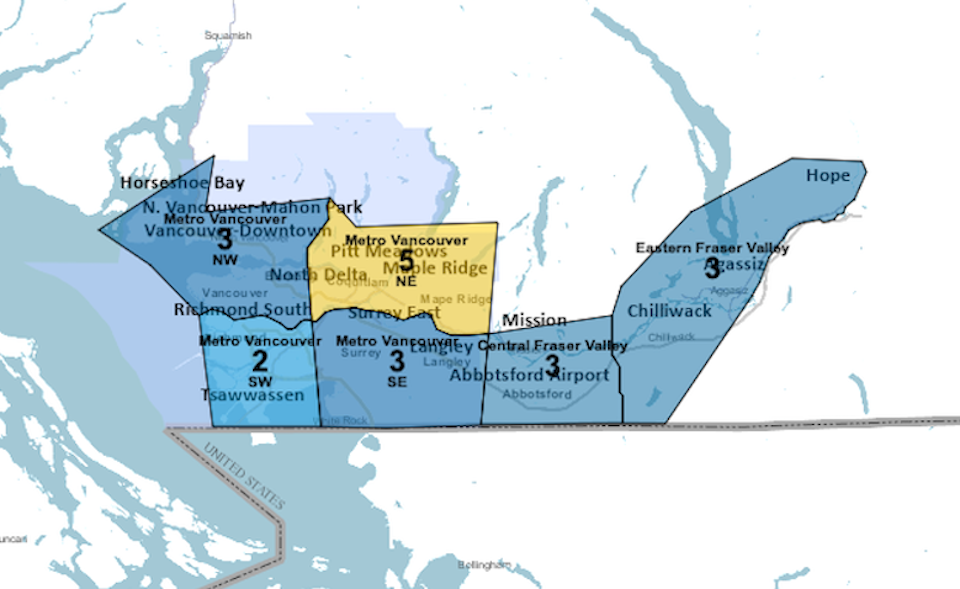A bush fire continues to burn in a massive Metro Vancouver park and is having some impacts on regional air quality.
A fire broke out in Coquitlam's Minnekhada Regional Park Saturday (Oct. 1) in the early morning at High Knoll and continued through the night. Due to challenging terrain, it is expected to take some time to completely extinguish the fire.
According to Metro Vancouver's AirMap, the northeast Metro Vancouver area has "moderate risk" conditions as of Sunday (Oct 2) at 4 p.m. This means people who are considered "at risk," such as those with heart and lung conditions, should consider reducing or rescheduling strenuous outdoor activities if they experience symptoms. However, the forecast calls for the risk to return to "low" by Monday.
The rest of the Metro Vancouver region has been assigned a "low" risk, meaning the air quality is ideal for outdoor activities.
But there are still some other impacts the blaze can have on the regional atmosphere.
Fire in Minnekhada Park breaks out
Environment Canada Meteorologist Yimei Li told Vancouver Is Awesome that there is a risk of smoke spreading to some surrounding areas.
The national weather forecaster has issued Air Quality Health Index reports for Metro Vancouver with "smoke" risks in the region's four areas. For instance, the northeast area has a "9" or "high" risk, the northwest area has a "6" or "moderate" risk, the southeast area has a "5" or "moderate," and the southwest area also has a "5" or "moderate."
All of the areas in the Metro Vancouver region are expected to have a "low risk" of smoke by Monday, however.
While it is still calculating the final numbers, Environment Canada expects this September's figures to show that Vancouver had its hottest September on record. And while it wasn't its driest, it was significantly drier than a typical year, noted Yi.
"Vancouver got 7.2 mm of rain...and most of that was on Sept. 4," she said. In a typical year, Vancouver sees about 50 mm of precipitation in the month.
The hot, dry weather isn't expected to stop anytime soon, either. For at least the next week, the forecast includes sunshine and unseasonably warm daily highs. As such, Yi cautions people who go into the wilderness to practice fire safety and abide by local and provincial rules.
In regard to the Minnekhada blaze, its size (under a hectare) and the fact that it is coming from a "single source" means it won't have the same impact on the atmosphere as some of B.C.'s devastating wildfires, added Yi.
If you are impacted by the smoke: keep windows closed, run a portable HEPA air cleaner, or visit a public building with air filtration.
A video to give a sense as to how close new developments are to the #Minnekhada #ForestFire, #Coquitlam #BC - the fire in a regional #park popular locals. There are also older homes near the fire.2:30p PT#ShareYourWeather #BCwildfire #Vancouver #BCdrought #BCdry @weathernetwork pic.twitter.com/TNxSLn3L2J
— Ryan Voutilainen 🇨🇦🇫🇮🇺🇦 (@RyanVoutilainen) October 2, 2022
With files from Diane Strandberg.



